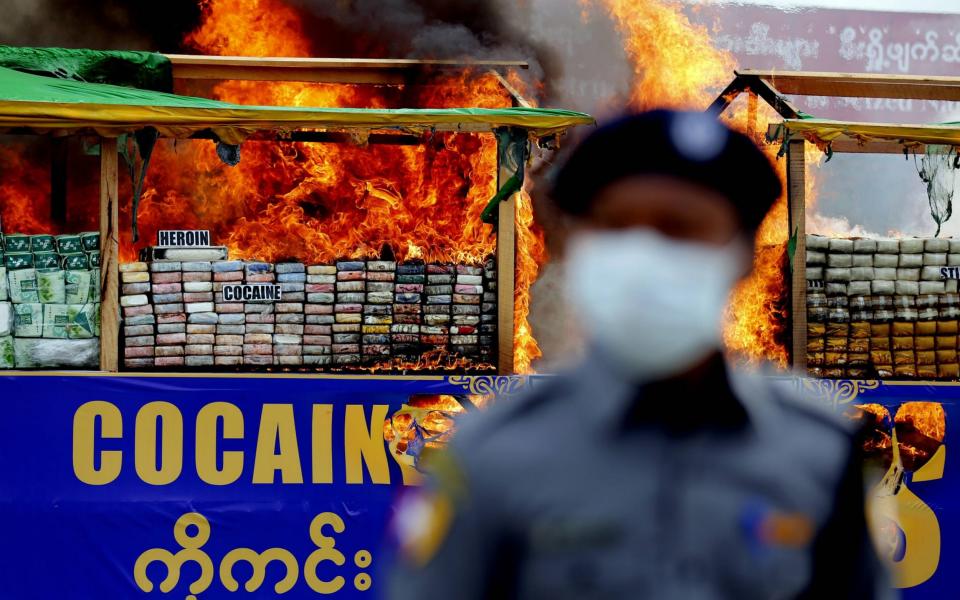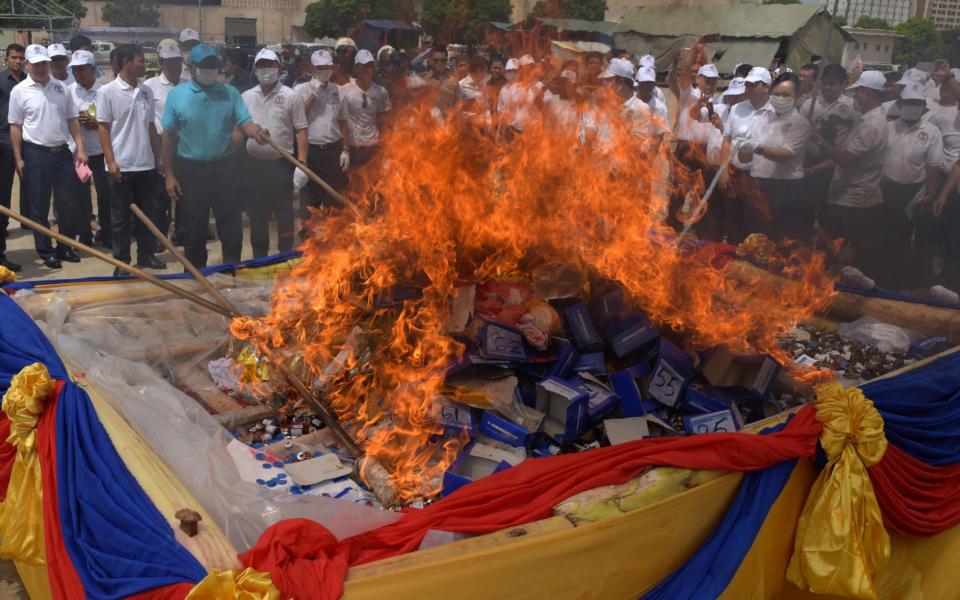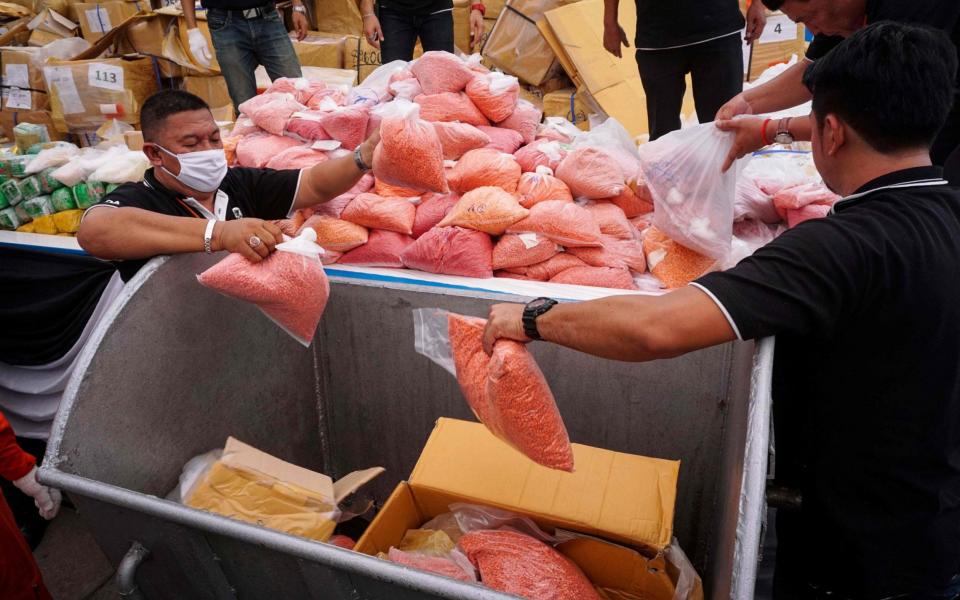Myanmar, Cambodia and Thailand burn $1billion of narcotics as police struggle against growing industry

Myanmar, Thailand and Cambodia torched nearly $1 billion (£786 million) worth of seized narcotics on Monday, a defiant show of force as police struggle to stem the rising flow of drugs in the region.
The burnings, to mark the UN's world anti-drugs day, follow another year of record seizures of narcotics from the remote borderlands of Myanmar, Laos, southern China and northern Thailand.

Myanmar in particular remains one of the world's great drug-producing nations, a dark legacy of decades of civil war in its frontier regions where troops and ethnic rebel forces have vied for control of the lucrative trade.
Armed gangs churn out vast quantities of opium, heroin and cannabis and millions of caffeine-laced methamphetamine pills known as "yaba" which are then smuggled out across Southeast Asia.

An estimated $385 million (£302 million) was burnt in three official ceremonies around Myanmar on Monday, according to a senior police officer in the capital Naypyidaw.
At the biggest bonfire in Yangon, huge clouds of smoke filled the sky as authorities set fire to stacks of opium, heroin, cocaine and methamphetamine tablets worth almost $220 million (£172 million).
"We burnt a record amount of drugs today... because police have seized more in recent years," drug enforcement officer Myo Kyi told AFP.
On an industrial estate on the outskirts of Bangkok, Thai authorities incinerated some $589 million (£462 million) worth of drugs including 7,800 kilogrammes of yaba pills and 1,185 kilogrammes of the more potent crystal methamphetamine.

And in Cambodia, officials burned 130 kilogrammes of drugs estimated to be worth some $4 million (£3.14 million).
The huge seizures are often touted as proof these countries are making inroads into the vast regional drug trade.
But law enforcement agents say they are just the tip of the iceberg as producers ramp up production to meet growing demand across Southeast Asia and increasingly in Bangladesh and India.
And unlike their Latin American counterparts, cartel leaders in the Golden Triangle are rarely ever arrested or killed.
The senior officer in Naypyidaw said almost all of the drugs burned at Myanmar's official ceremonies originated in the eastern state of Shan in areas controlled by ethnic armed groups.

The kingpins are the United Wa State Army, a 25,000-strong militia known as Asia's most heavily-armed drug dealers who boast their own autonomous territories on the border with China and have close links with Beijing.
Despite their reputation, the Wa deny producing drugs and even staged their own burning session on Monday in the village of Ponpakyin.
Myanmar has also been struggling to stem a growing tide of drug addiction inside its borders.
Experts say yaba use has exploded as ethnic armed gangs switched from exporting all the pills abroad to increasingly targeting domestic users.
Buddhist monks and military officers were among 13,500 people prosecuted for drugs crimes in 2016, up 50 percent from the previous year, according to data seen by AFP.

"Drug production has increased every year since 2006," Yangon police chief Win Naing told crowds gathered for Monday's ceremony on the outskirts of the city.
In a bid to combat the growing scourge, Myanmar's new civilian government is seeking to overhaul stringent anti-drug laws brought in under the former military government.
Current legislation means anyone found with even small amounts of drugs can be jailed for years.
Thailand meanwhile has the world's sixth-largest prison population and the tenth highest incarceration rate in the world, largely thanks to its strict anti-drug laws.

